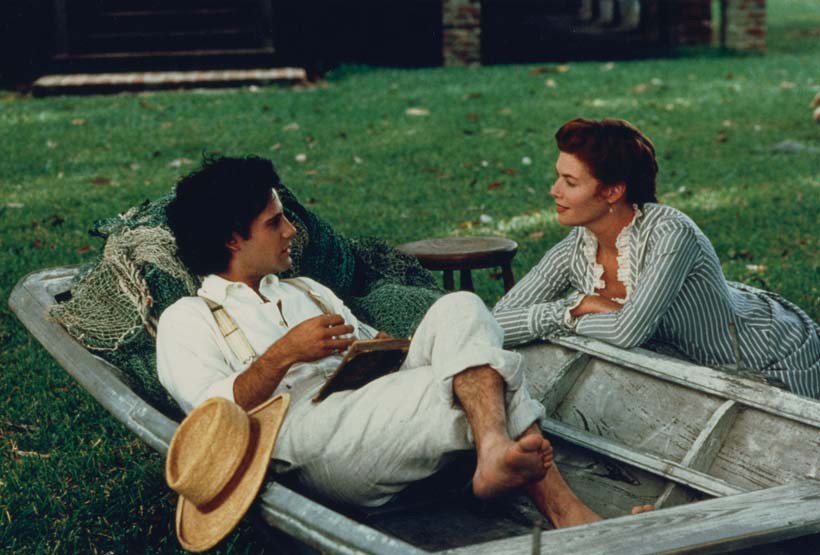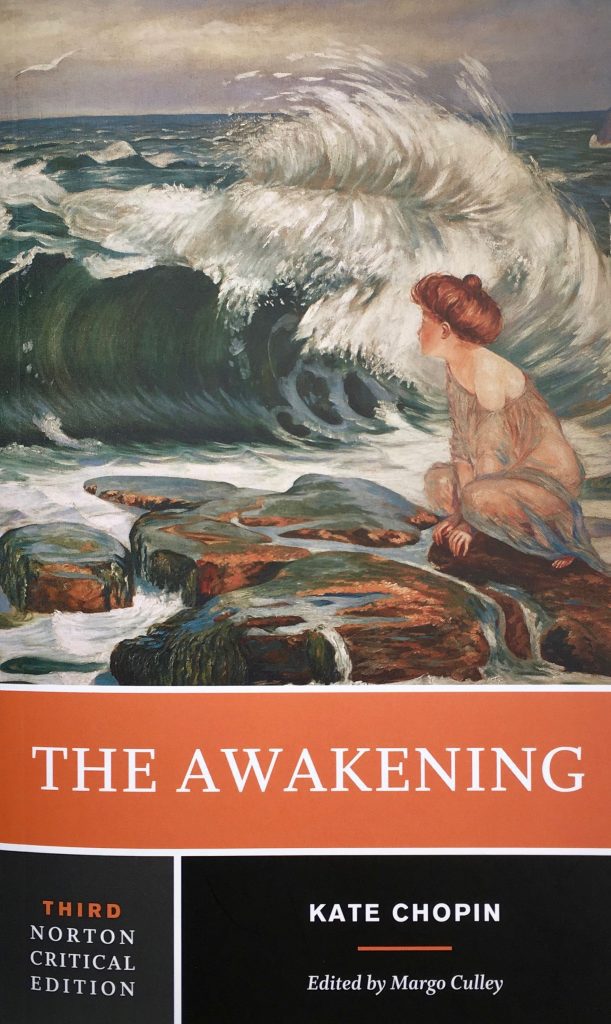Kate Chopin’s The Awakening is a tale of personal redemption and self-discovery. A visceral portrait of what it means to be a woman, both within the nineteenth century and modern contexts. Despite our many strides toward equality, we still find tired stereotypes of women played out in multiple avenues of media from television and film to literature. There is a mission to breakout– redefine ourselves within the context of our independence and personal self-expression. Often times, especially within the context of the novel period, women were defined solely by their husbands, forced into marriage for financial gain as opposed to true feelings of love. They were forced into the expected roles of “dutiful wives” and “doting mothers”, without any other option for expression.
Chopin’s novel turns that very idea on its head, bolstering a main character who pulls away from the fray; exploring the ability to live as her own human being. She gives herself the opportunity to live a life not ruled by the societal expectations that previously chained her persona, to give into her art and her desires. She was finally allowed to discover her love in passion, idleness, and personal understanding. Edna indulges herself in an understanding of her greatest needs as a human being- one that is equal to the endeavors of men, yet so often stifled due to the condemnation of her sex.

The novella’s title is more than just a randomized selection– but something very thought out and intentional. Chopin is opening up to us about the world of Edna’s personal “awakening” but furthermore, presenting her world with the question of what it means to be an authentic woman. She digs deeply into the core of being and reveals the fraught reality that, especially in the context of her world, society is predisposed to turn her down. It fights against every fiber of her being, yet in removing herself from the mundane realities, you meet the true Edna. The true woman… Someone much more complex and merited than merely the “ideal” personification touted by the nineteenth century societal standards.
It signals not only a personal sense of “Awakening” on the behalf of Edna, but furthermore a societal awakening. It is a turning point towards the allowance for self-discovery itself… Furthermore pulling upon ideologies of the feminist movement as well as the sexual revolution of the 60s. We are meant to recognize as modern readers that Edna is not doing anything out of the ordinary… The want to find herself… Yet, due to the misconceptions of sexual bias, they lead to her eventual death.
In her death we find a social commentary in and of itself– the true scale of the oppressive, dilapidating constraining of the human soul. It goes beyond even gender in its recognition– this is a human issue. Women are human. They have every right to receive the save fundamental rights of men… And when they’re taking away– what is the point of moving on? Yes, Edna got her awakening, yet she was so heavily chastised she became severely outcast– cut out from the world as a whole.

Chopin’s novella is a revelation not only on a personal understanding, but also a great large-scale mission. Women are meant to experience life, without anything hindering their personal success and endeavors. They are more than figureheads of the “perfect family unit.” They are their own person and should be treated as such. Society needs to open its eyes to the true equality of human beings because when they drag their feet, it ends in fatality– a world unable to adapt to progressive minds.
It signals a call to a collective awakening of respect, independence, understanding, and equity… Calling the world to recognize that every human being should be receptive to that same care. The world needs to “awake” to their own misdoings and move forward in order to allow all people to experience freedom in an open forum of acceptance.
Advertisements Share this:


![All Those Things We Never Said (US Edition) by [Levy, Marc]](/ai/030/021/30021.jpg)

